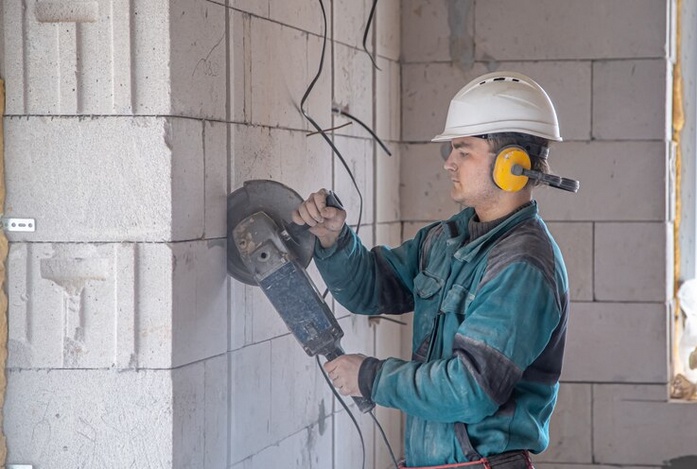Building maintenance service play a vital role in sustaining the functionality, safety, and longevity of structures across various sectors. While construction is the initial phase in creating a building, maintenance ensures that the investment remains viable and productive over its lifecycle. From routine inspections to proactive repairs and upgrades, building maintenance services contribute significantly to preserving assets, enhancing occupant satisfaction, and optimizing operational efficiency.
Preserving Asset Value
One of the primary benefits of investing in building maintenance services is the preservation of asset value. Buildings represent substantial financial investments for owners, developers, and stakeholders. Without proper maintenance, these assets can quickly depreciate in value due to wear and tear, neglect, and the accumulation of issues over time.
Regular maintenance activities, such as inspections, repairs, and preventive measures, help identify and address potential issues before they escalate into more significant problems. Whether it's repairing a leaking roof, addressing structural defects, or upgrading mechanical systems, proactive maintenance preserves the integrity and functionality of the building, thereby safeguarding its value and prolonging its lifespan.
Enhancing Occupant Satisfaction
Another crucial aspect of building maintenance services is their impact on occupant satisfaction. Whether it's commercial tenants, residents, employees, or visitors, occupants expect a safe, comfortable, and well-maintained environment. Buildings that are poorly maintained can lead to dissatisfaction among occupants, affecting their productivity, morale, and overall experience.
Routine maintenance activities, such as cleaning, landscaping, and HVAC servicing, contribute to creating a pleasant and functional space for occupants. Additionally, prompt resolution of maintenance issues, such as plumbing leaks, electrical problems, or malfunctioning equipment, demonstrates responsiveness and care on the part of building management, fostering trust and satisfaction among occupants.
Optimizing Operational Efficiency
Building maintenance services also play a crucial role in optimizing operational efficiency and reducing operational costs. Well-maintained buildings are more energy-efficient, with properly functioning systems and equipment consuming less energy and resources. Regular maintenance of HVAC systems, lighting, insulation, and other building components can lead to significant energy savings over time.
Moreover, proactive maintenance helps identify opportunities for efficiency improvements and cost-saving measures. Whether it's upgrading to more energy-efficient technologies, optimizing maintenance schedules, or implementing sustainable practices, building maintenance services contribute to reducing operational expenses and enhancing the overall financial performance of the property.
Ensuring Safety and Compliance
Safety and compliance are paramount considerations in building maintenance services. Buildings must adhere to various regulations, codes, and standards to ensure the safety and well-being of occupants and the surrounding community. Regular inspections and maintenance activities help identify and address safety hazards, structural deficiencies, and compliance issues promptly.
Additionally, building maintenance services encompass emergency preparedness and response, ensuring that buildings are equipped to handle unexpected events such as fires, natural disasters, or security threats. By implementing safety protocols, conducting drills, and maintaining essential safety equipment, building managers mitigate risks and protect occupants and assets.
Promoting Sustainability
Building maintenance services also contribute to promoting sustainability and environmental responsibility. Sustainable maintenance practices, such as water conservation, waste reduction, and energy efficiency improvements, help minimize the environmental impact of buildings and operations. From installing low-flow fixtures to implementing recycling programs, building managers can reduce resource consumption and carbon emissions while enhancing the overall sustainability of the property.
Furthermore, maintenance activities provide opportunities to incorporate green building principles and technologies into existing structures. Whether it's retrofitting for energy efficiency, installing renewable energy systems, or implementing green roofs, building maintenance services play a crucial role in advancing sustainability goals and reducing the ecological footprint of buildings.
Conclusion
In conclusion, building maintenance services are essential for preserving asset value, enhancing occupant satisfaction, optimizing operational efficiency, ensuring safety and compliance, and promoting sustainability. By investing in routine maintenance activities and proactive measures, building owners and managers can protect their investments, create positive experiences for occupants, reduce operational costs, mitigate risks, and contribute to a more sustainable built environment.
Moreover, building maintenance services represent a strategic investment in the long-term viability and success of properties. Rather than viewing maintenance as a cost, it should be seen as a critical component of asset management and value preservation. By maintaining momentum through ongoing maintenance efforts, buildings can remain functional, resilient, and relevant for years to come, ensuring a prosperous future for owners, occupants, and communities alike.


No comments yet